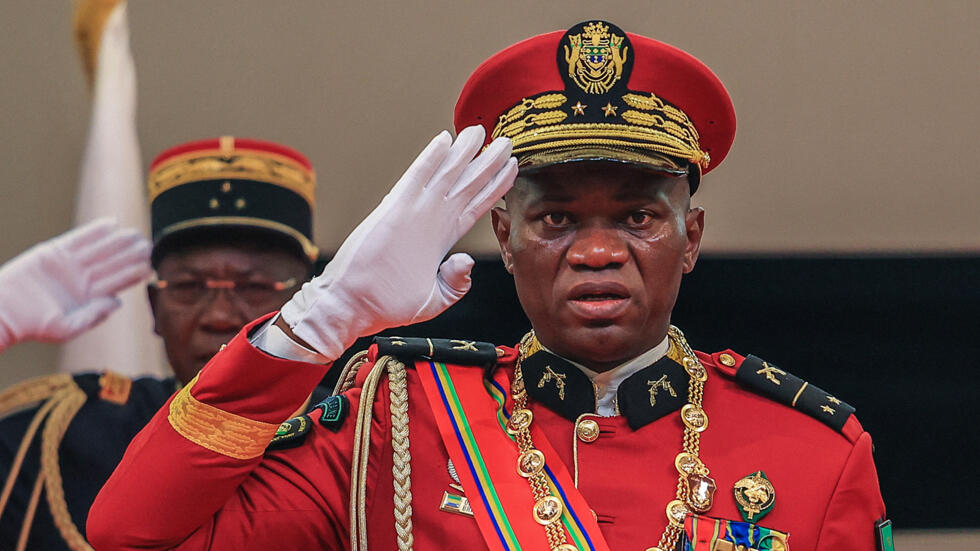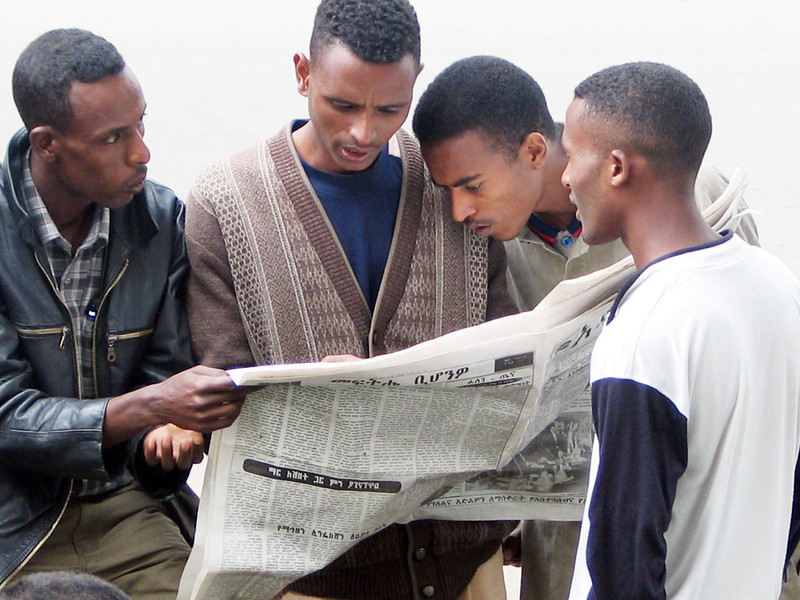We are excited to announce that Brink is now part of Africa Practice. Learn more
The 26 August general elections in Gabon were expected to be business as usual. The re-election of President Ali Bongo, in power since 2009, seemed assured. Before him, his father, Omar Bongo, ruled as President of Gabon from 1967 until his death. Control over the political and economic spheres of the country by the Bongo family and their inner circle, as well as the ruling Parti Démocratique Gabonais (PDG), left little room for a potential alternative to emerge.
Calm in the run-up
A history of electoral manipulation made a different outcome difficult to conceive, despite a desire for change among large parts of the population. In 2016, the opposition candidate Jean Ping was poised to win, but a suspicious recount in the home province of the Bongo family gave the incumbent president a narrow victory. This was followed by a crackdown on protests and supporters of Jean Ping, as well as the opposition candidate himself, which left many despondent and fearful of further violence.
The 2023 electoral period was marked by heavy deployment of security forces in the streets, late changes to the electoral process, and the absence of international observers and foreign correspondents. In the aftermath of the vote, an internet blackout lasting over three days was imposed, further undermining the prospect of a fair election and victory for a resurgent political opposition. Just eight days before the vote, key members of the opposition had rallied behind a common candidate, Albert Ondo Ossa, and injected energy into a so far lacklustre electoral campaign. While this rattled the government, the forces stacked against the opposition looked as though they would again prove to be too great.
Despite allegations from Ondo Ossa and the opposition of widespread fraud, President Ali Bongo Ondimba was declared the winner in the early hours of 30 August, with the country still cut off from most means of communication. His re-election however turned out to be short–lived.
Unexpected turn of events
When news of the coup began to filter on the morning of 30 August, the initial incredulity and uncertainty were quickly replaced by celebrations across the country. There has been little interest among the population at the palace intrigues that may have led to the coup, but rather a sense of relief and measured hope at what the future could now hold.
The coup leaders have moved quickly to set up the foundations for a political transition. On 4 September, coup leader General Brice Clotaire Oligui Nguema was officially sworn-in as the president of the transition in Gabon and the head of the Committee for the Transition and Restoration of Institutions (CTRI). In his address, he laid out the key political reforms the CTRI would undertake, including a constitutional referendum and new electoral code, and committed to a return to civilian government via credible and transparent elections.
The general has also been proactive in reassuring civil society, political parties, the media and the international community of his intentions, providing hopes of an inclusive transition. Consultations were held in Libreville with these different segments of society in the days ahead of his swearing-in. Later that day, he met with Albert Ondo Ossa, a notable absentee from the ceremony who had until then denounced the coup as a plot to maintain other members of the Bongo family in power, and maintained he was the legitimate winner of the 26 August polls. While the contents of the meeting have not been disclosed, Ondo Ossa has now also given his implicit approval to the transition.
Transition underway
Several points of concern remain for those fearing a prolonged period of military rule. The CTRI is yet to commit to a specific timetable for the transition. A transitional government is yet to be formed at the time of writing, and speculation is ongoing as to what the balance will be between civilians and members of the military in the transitional governance structures.
General Oligui has committed to prosecute corruption and address cronyism. In addition, he has issued instructions and laid out preliminary plans concerning education, health, pensions, and public utilities and infrastructure (transport, water), the state of which are all major grievances of the population.
With the transition getting underway, attention will gradually turn to the wider agenda of the CTRI and the extent to which it builds or not on the policies of the previous administration. Historic dependency on oil to drive economic growth and revenues is no longer viable. Gabonese oil fields have been declining in output since the late 1990s and there is no immediate prospect of a resurgence for the industry.
With this in mind, when he came to power, Ali Bongo set an ambitious agenda to diversify the economy. This has seen some notable successes, particularly in the forestry and wood sectors. Progress on other sectors earmarked for development has been slower but is gaining momentum. In the case of mining for example, the exploitation of manganese remains the only established industry to date. But, a host of operators and exploration companies have been looking to establish themselves in Gabon, which holds abundant reserves of iron ore and gold amongst other metals and minerals.
The environmental agenda
Over the past decade and a half, Gabon emerged as a leading representative for sub-Saharan Africa in international fora and negotiations on climate change and biodiversity protection. One of the most forested countries in the world, Gabon has been a significant advocate and partner of efforts to find solutions for the preservation of the rainforests of the Congo Basin.
Unfinished initiatives include a plan for a major issuance of carbon credits using the United Nations Framework Convention on Climate Change (UNFCCC) REDD+ mechanism. The country also possesses some of the largest populations of endangered species, including forest elephants. While their protection up until now has seen their numbers rise, this has come at the cost of worsening human-elephant conflict, another key grievance for rural Gabonese.
A distinct coup
The coup in Gabon is distinct from those that have proliferated in West Africa, and the Sahel in particular, over the past three years. France, the US and the EU have condemned the coup, but also shown nuance by acknowledging the lack of legitimacy of the electoral process.
The prospect of harsh economic and political sanctions seems unlikely, as does a major deterioration of relations with France, the former colonial power. In his address at his swearing–in ceremony, General Oligui quoted several well-known Gabonese and African political figures, including Omar Bongo, late Ghanaian coup leader and President Jerry Rawlings, and the late bishop and anti-apartheid activist Desmond Tutu. He also referred to former French General and President Charles de Gaulle, stating that, like de Gaulle, the Gabonese defence and security forces chose to be on the side of the people and freedom.
About the author
Alex Vergé is a senior consultant at Africa Practice. He can be contacted at [email protected]
Proud to be BCorp. We are part of the global movement for an inclusive, equitable, and regenerative economic system. Learn more



